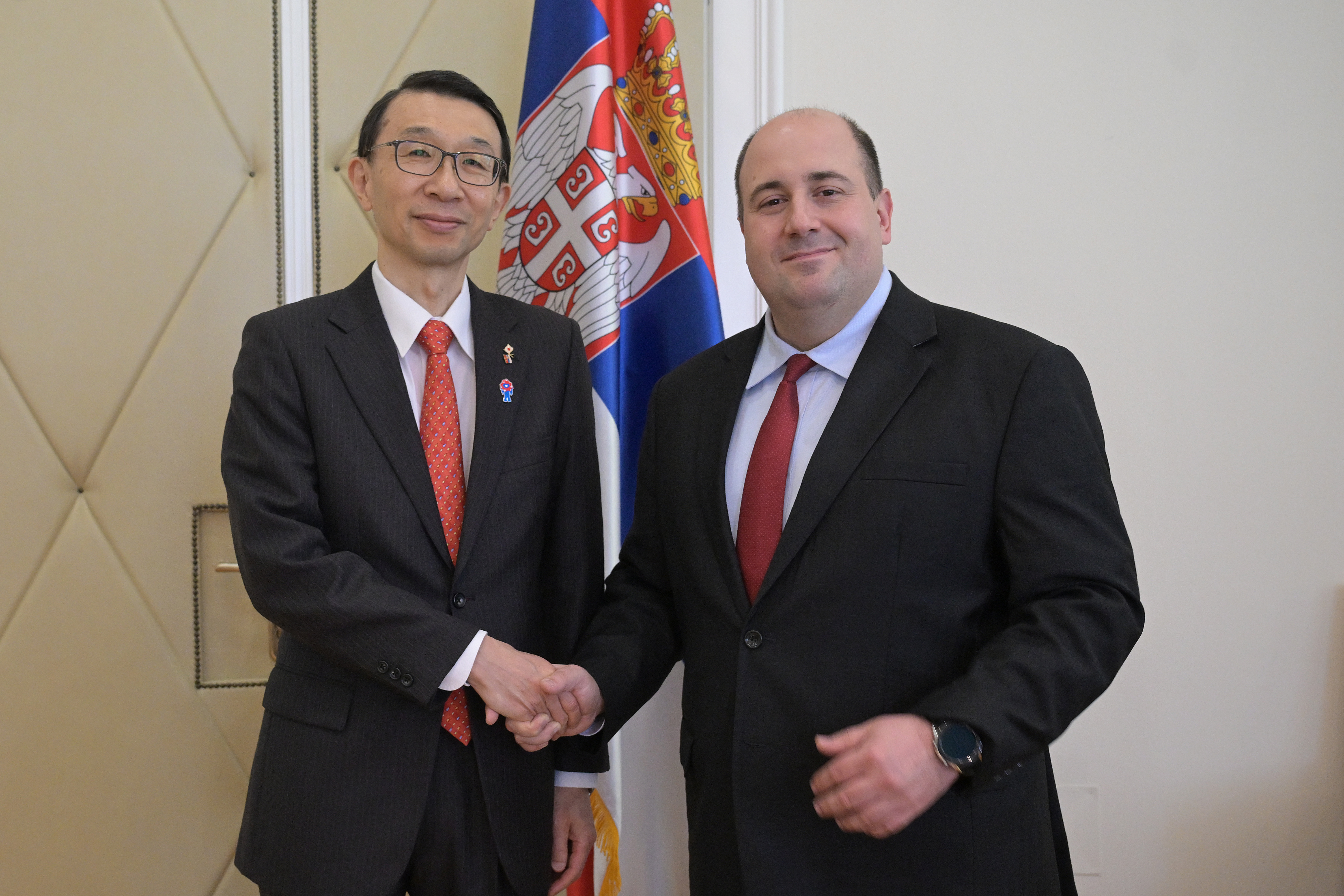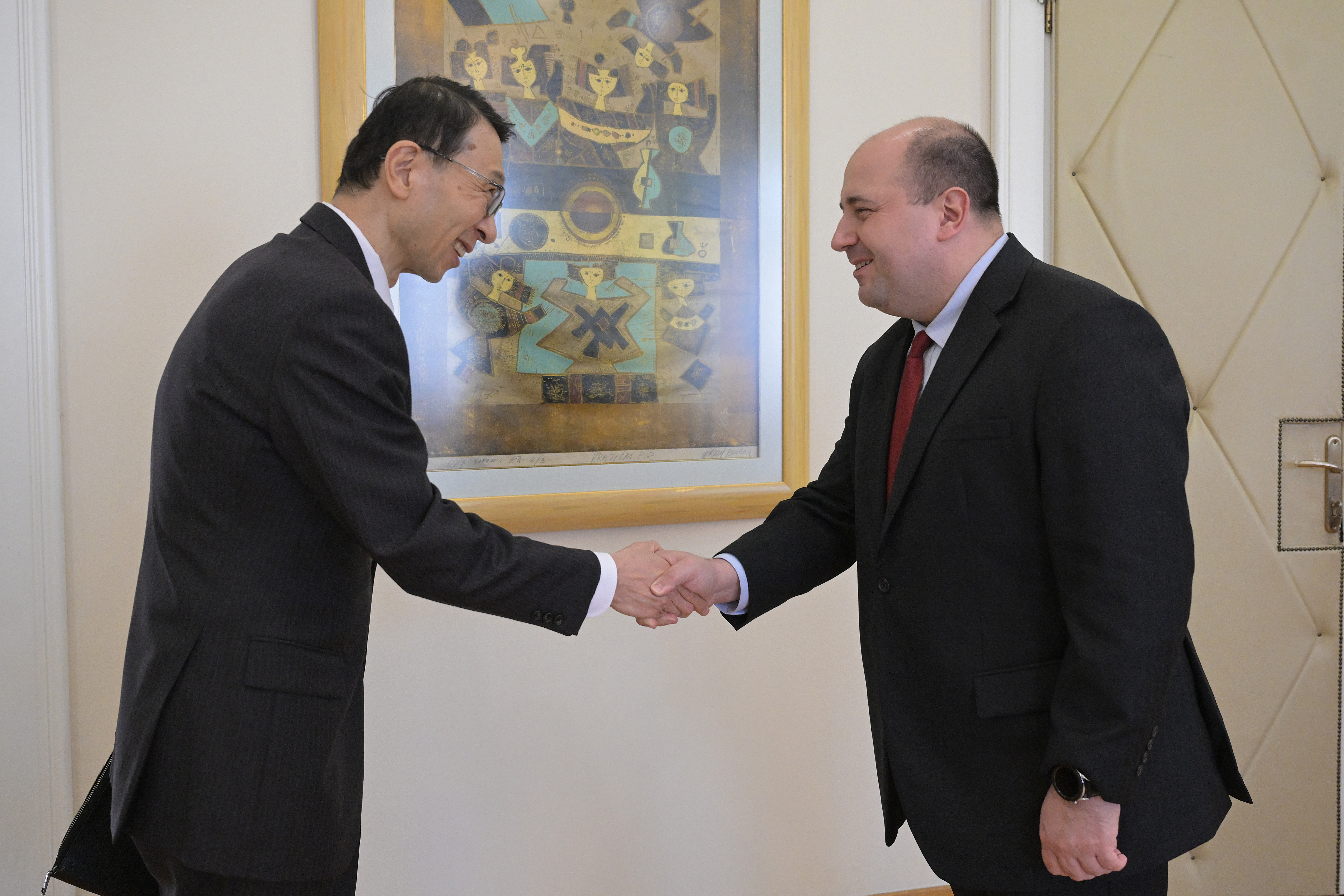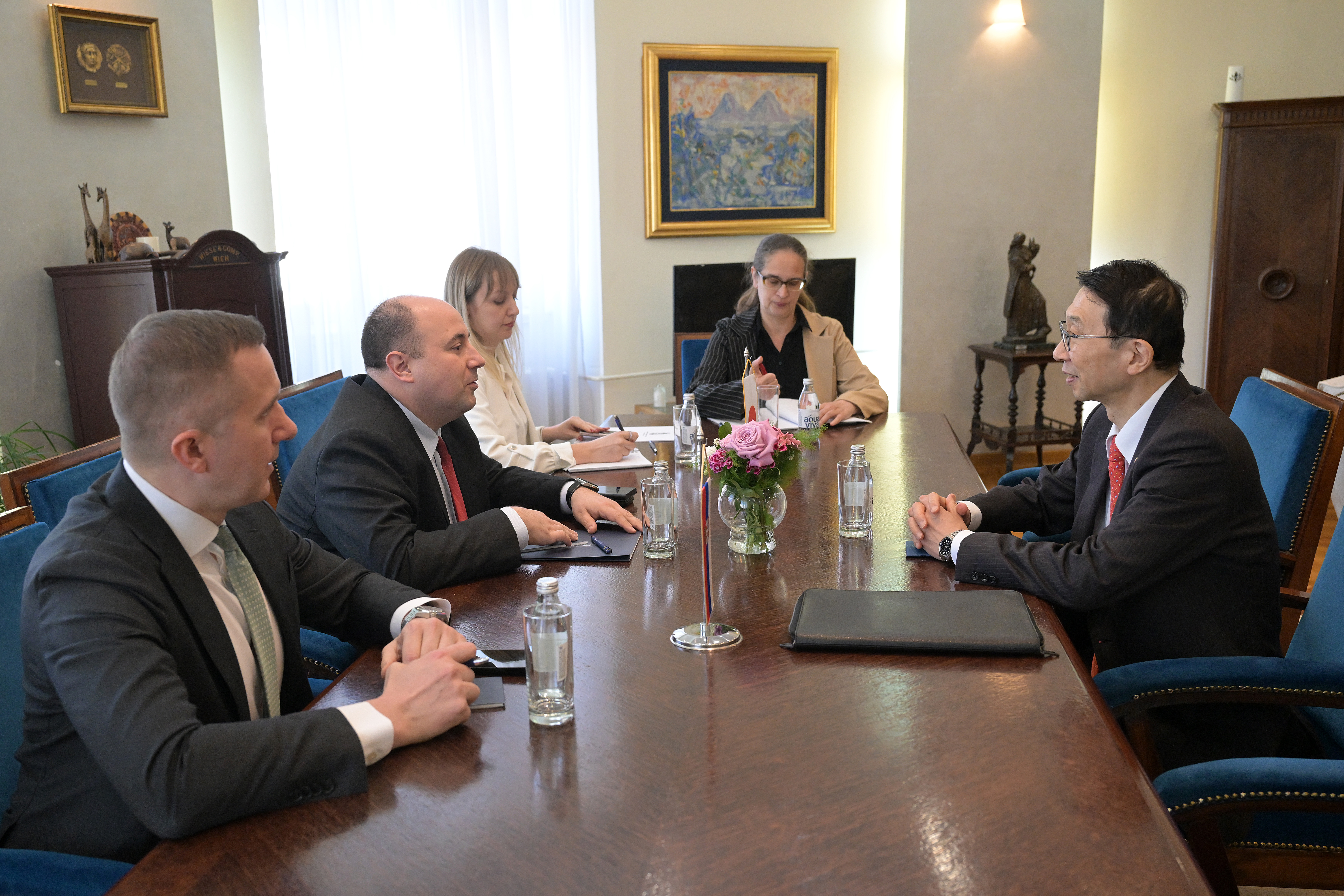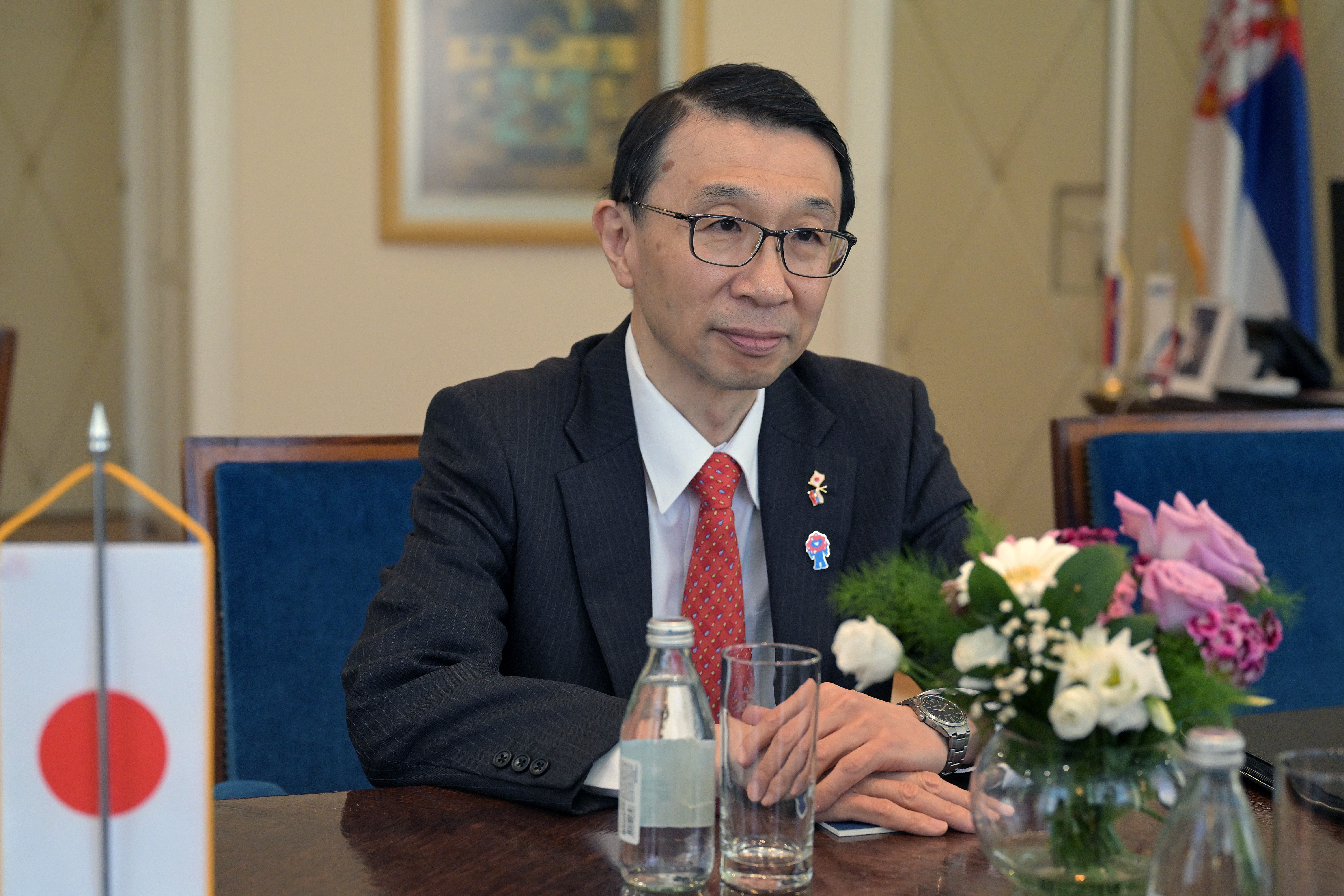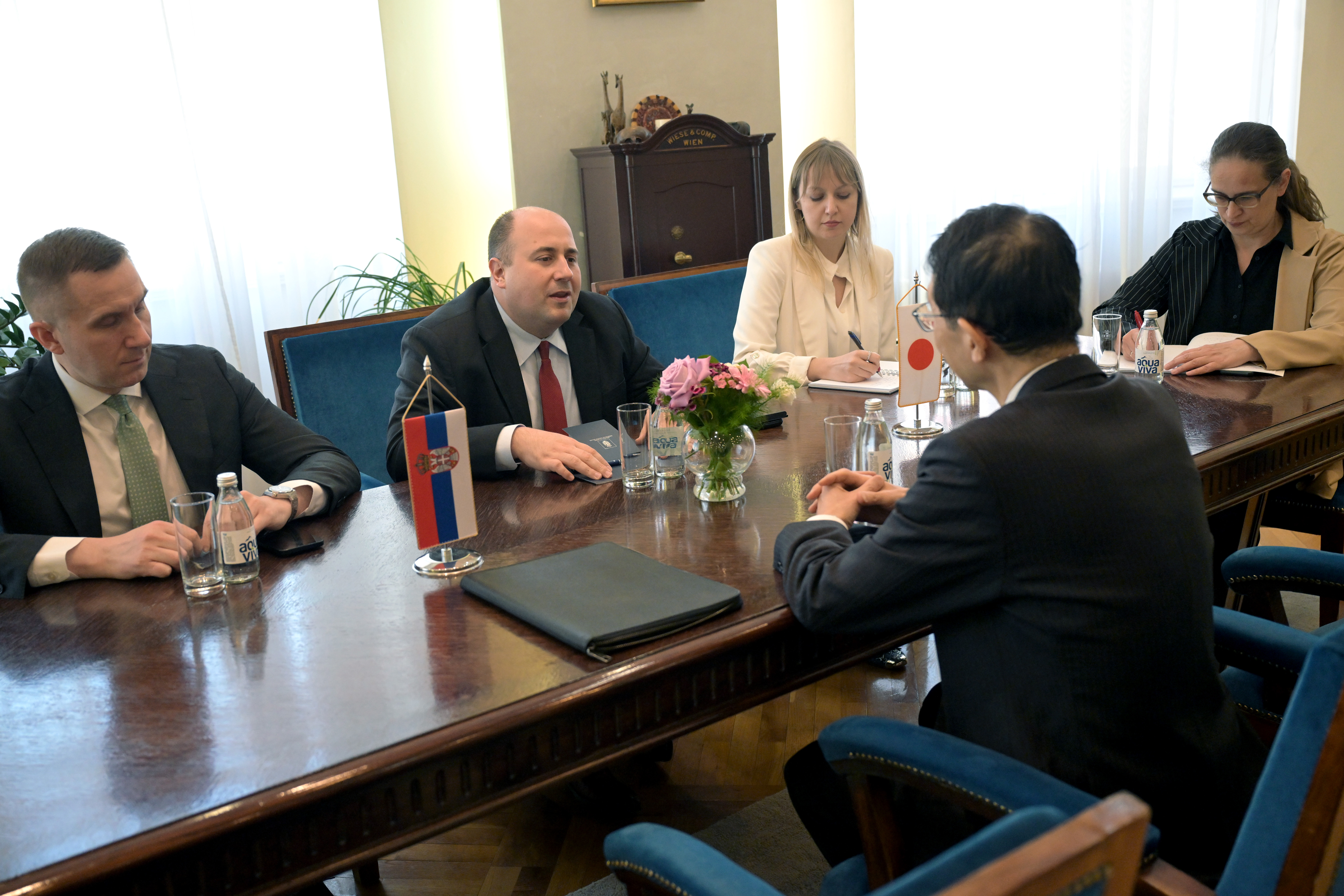Japan supports Serbia’s path
Secretary General Kozarev briefed Ambassador Imamura on the current situation in Kosovo and Metohija, expressing deep concern over Pristina’s unilateral actions aimed at intimidating and displacing the Serbian population.
Regarding tensions in Bosnia and Herzegovina, Kozarev reiterated Serbia’s firm commitment to preserving peace and stability in the region and to fully upholding the Dayton Agreement.
He also drew attention to the recent political instrumentalization of the tragedy in Novi Sad, which culminated in the blockade of the public broadcaster and today’s public targeting of the Dean of the Novi Sad Faculty of Sport and Physical Education. Kozarev stressed that all forms of violence—whether directed at individuals or institutions—and any obstruction of the media’s ability to carry out their professional duties are unacceptable in a democratic society and cause serious harm to Serbia.
Ambassador Imamura reaffirmed Japan’s support for Serbia’s overall modernization and advancement. He noted that economic cooperation between Japan and Serbia has traditionally been strong and that Japanese companies continue to show considerable interest in the Serbian market and in implementing significant investment projects and partnerships across various sectors, especially in advanced technologies. He also presented Japan’s vision of a global digitalized “Society 5.0,” in which Serbia plays an important role through its commitment to developing artificial intelligence and the IT sector.
The two sides discussed the potential impact of the upcoming changes in U.S. customs policy on the export of goods from Japanese factories in Serbia to the U.S. market, expressing mutual confidence that Presidents Vučić and Trump will, at their upcoming meeting, identify appropriate solutions to ensure the continued smooth functioning of existing supply chains.
Both sides welcomed the successful start of Expo 2025 in Osaka and expressed shared confidence that Japan will participate in Expo 2027 in the Serbian capital.
It was noted that the bilateral political dialogue remains active and that mutual relations—already excellent—would benefit further from exchanges of visits at high and highest levels.

